Author’s note: the opening section of this article was written 2 days into 2023.
Congratulations! The earth has completed another rotation around the sun. This means a fresh new start and a clean slate for you to begin once anew. Armed with vigor and optimism, you set out to the world with a glimmer in your eye and a fire in your heart, ready to complete every resolution handwritten on your fancy new 2023 planner.
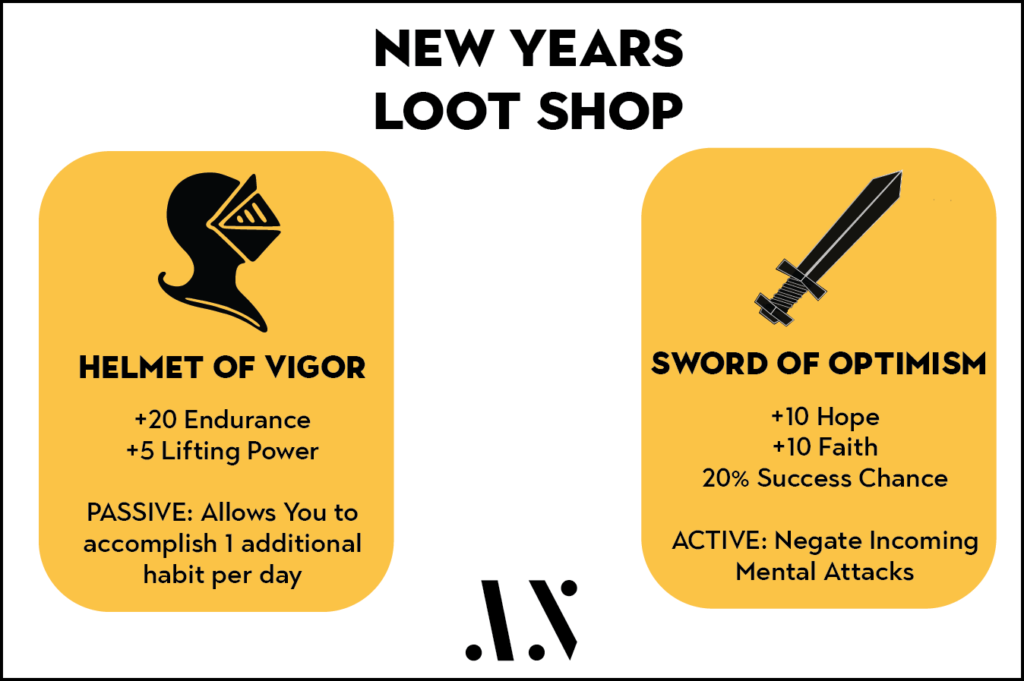
This will finally be the year where you get in shape, fall in love, create multiple income sources, and read 52 books. To begin your improvement journey, you think to yourself: “If I read a self-help book about my goals then I will catch two birds with one stone.”
So you open “Wealthy Caregiver, Impoverished Parent” and start reading.
In the blink of an eye, you find yourself surrounded by piles of self-help books, tracking your gratitude on your planner, doom-scrolling through entrepreneurship Twitter, and defending people like Ant Roux Tooth.
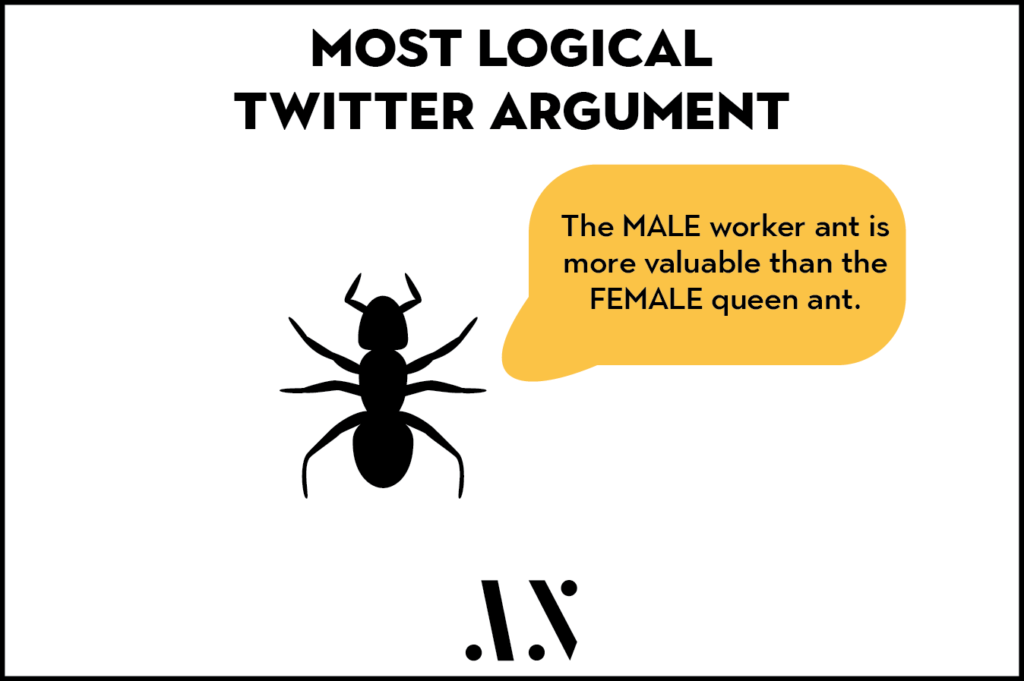
What happened to you? You were supposed to start a small business, say yes to new opportunities, and learn how to use every Adobe tool. Yet it’s near the end of summer and you’ve barely made any progress.
It’s All About Progress
The keyword is Progress. To confidently say that we have achieved something, we must first have a previous state of reference to which we can compare it to. For example, you can’t say that you’ve grown taller if you can’t compare it to your previous height (which is totally above 6’0).
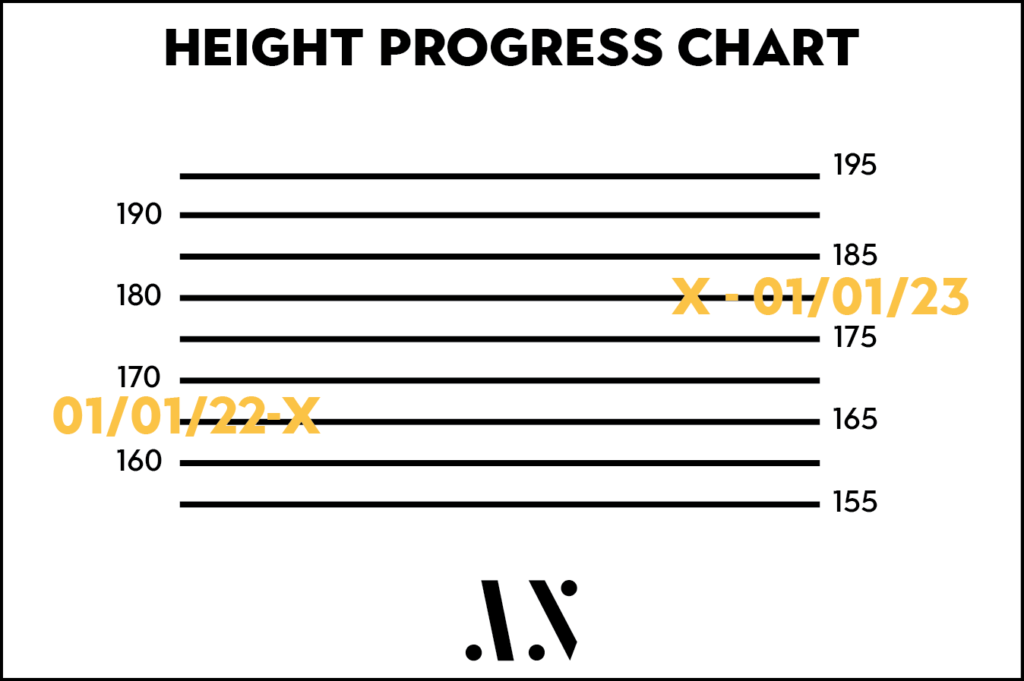
These active comparisons are what I define as progress. Progress has the ability to lift us up by seeing how far we’ve come, or bring us down by observing the opposite.
As such, I believe that progress is a crucial resource for any goal (in this case resolution) we should strive to obtain This means that we cannot afford to waste or hinder progress.
This is why one of the best things a person can enact on their progress is to ditch the $10.5 self-help industry. Although it might sound counter-productive (pun intended), liberating yourself from unrealistic standards and over-the-top success top may just be the solution for you.
The Problem with Self-Help Books
You Can’t Escape Them
If you were to step into your local bookshop, one of the first things that would catch your eye is the sheer volume of self-help books overshadowing other genres.
Similarly, social media trends like “that girl” and “Day in the Life” romanticize hustle culture and productivity. It almost feels like self-help books have become unavoidable.
As a consequence of this constant promotion, your reading choices are influenced and you begin to belittle non-productivity books.

After all, why would you read a fiction story like “The Memory Police”, when you could be reading “This is Marketing” and using its content to your advantage?
Impractical and Vague Advice
For a category of books that promise to radically change your life (more on marketing later on), self-help books contain a shocking amount of vague indirect advice.
Authors often counsel readers to ‘think about the problems of their life/business/partner’ and ‘tackle these issues piece by piece.’ Not only is this useless guidance, but it also leaves much room for interpretation.
For instance, marketing self-help books often advise their readers to think of their audience and use psychology to address their pain points.
However, they fail to recognize that the reader has little to no experience with marketing or psychology. If the reader was to utilize the suggested solutions, the book’s answers would fail to effectively solve the reader’s problem.
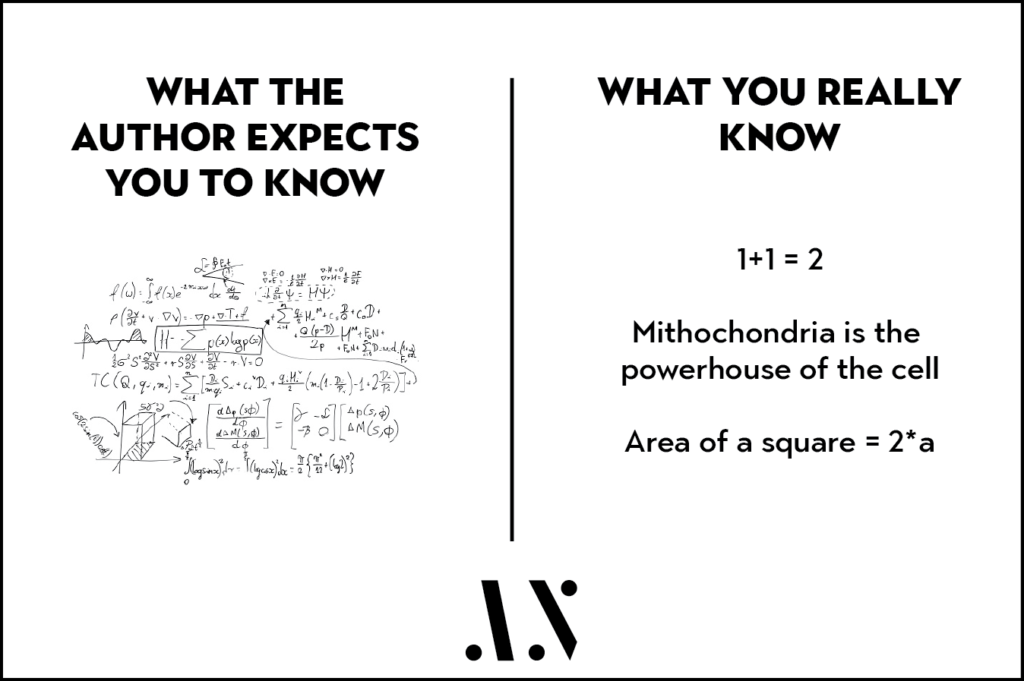
Multiple self-help books assume that the reader is familiar with the subject the book discusses. When in reality, the main audience is reading the book because they want to learn more about the subject.
On the opposite side, books that only introduce the subject end up being elementary and tedious. Thus, the reader does not gain new knowledge and insight.
Recycled Content
Though more popular with online courses and e-books, printed self-help books equally suffer from recycled content problems. Authors share examples and advice that was either previously stated by someone else or can be found on the internet for free.
Not only is content aggregation morally grey, but it also wastes the reader’s time and attention. This leads to the assumption: “if you read one self-help book, you have read them all.”
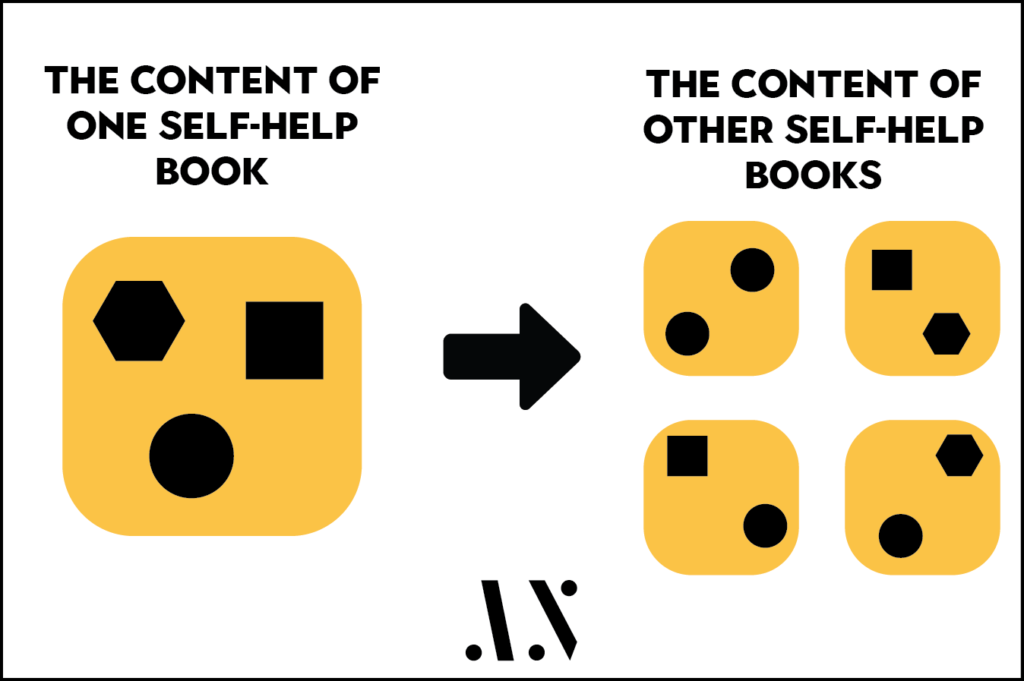
Moreover, it is unclear whether authors are purposefully recycling content. One could argue that self-help figures are consuming the same media which produces the same thought pattern. At the same time, authors might effortlessly rewrite books for a quick cash grab.
Survivorship Bias
Survivorship Bias is a method of logical thinking that overlooks non-successful cases in favor of successful ones.
An example of this would be waking up at 6 AM every day since millionaires wake up early. And ignore scientists (non-millionaires) that advise following your circadian rhythm for higher natural energy levels.
Whether it is intentionally done or over-negligence on the author’s part, self-help books (hell, self-help media as a whole) are one of the biggest actors of survivorship bias.
They believe that since their method was successful for them, it must be the most efficient solution for everyone else. As a result, these books promote outdated or unaccommodating advice.
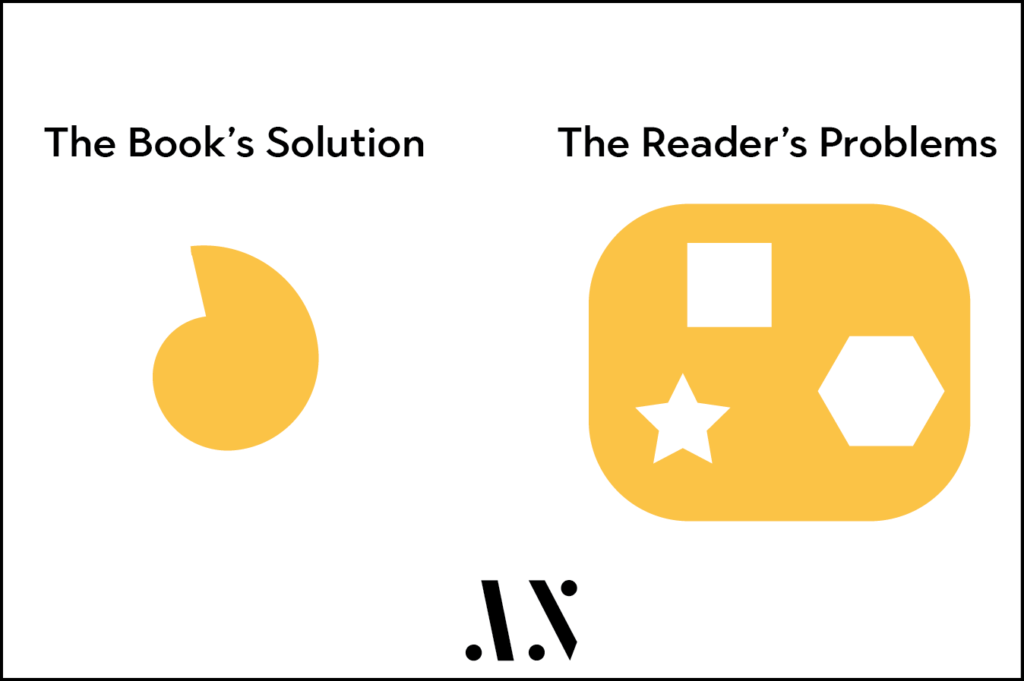
There are too many variables such as ethnicity, mental state, income level, connections, and timing which can nullify the entire point of a self-help book.
While there are some unique cases where books are updated for new editions (like “The 4-Hour Work Week” ), most do not bring their data and methodology up to date.
False Hope Syndrome
According to psychologists, False Hope Syndrome is when a person underestimates the process of self-improvement and becomes disillusioned about their progress.
In Layman’s terms, it’s that feeling you get when you substitute dessert for a fruit two days in a row and you believe that you have become healthier.
The issue with False Hope syndrome is that it can be severely intoxicating for the human brain. When we believe that we’ve improved in a short period of time, almost as if hacking the process, our brains celebrate with unhealthy amounts of positive chemicals. It is this exact high that makes people addicted to self-help books.
These books are selling us the idea of becoming rich, fit, and popular. It leads your brain to believe it’s true and generates a euphoric feeling and associates the high with self-help books.
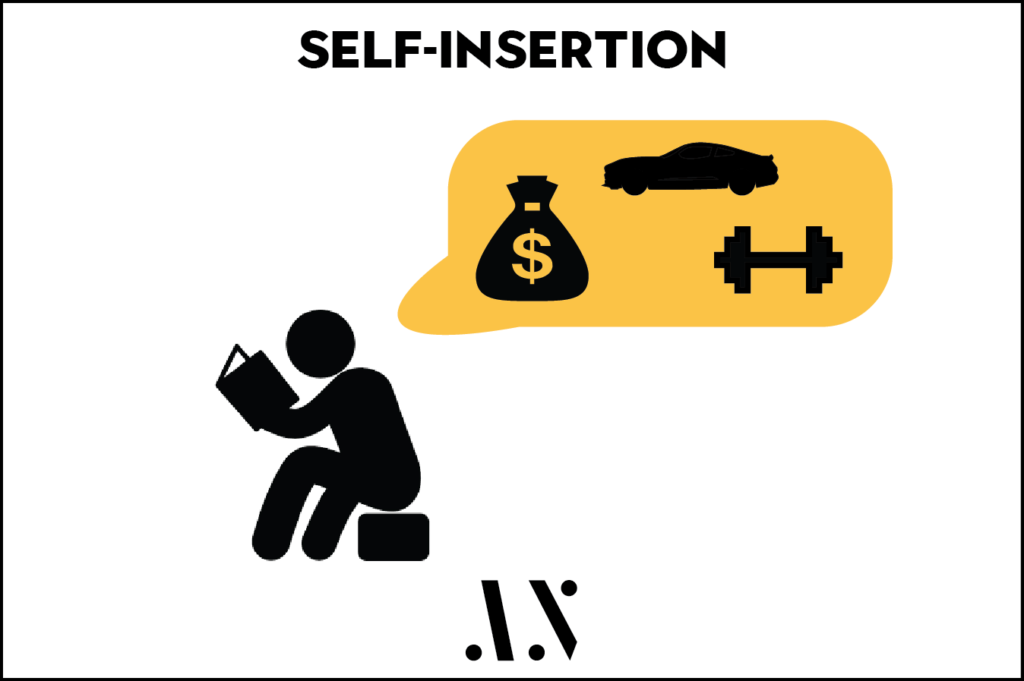
Just like that, readers consume book after book, chasing the high of false hope syndrome, directly contributing towards growing this $10.5 billion industry.
Luckily, False Hope syndrome can be easily recognized in self-help books. They often bombard the reader with affirmations and convince them that they possess traits identical to successful people, implying that they too can lead a fulfilling life.
Encouragement to Spend More
Have you ever noticed that nearly every toothpaste brand has a toothbrush product as well? This is a very basic economic/marketing concept known as complementary goods which encourage consumers to purchase two products instead of one.
For businesses, complementary products are severely important since it increases profits and customer satisfaction. This is why self-help book authors often try to complement their books with seminars, courses, and events.
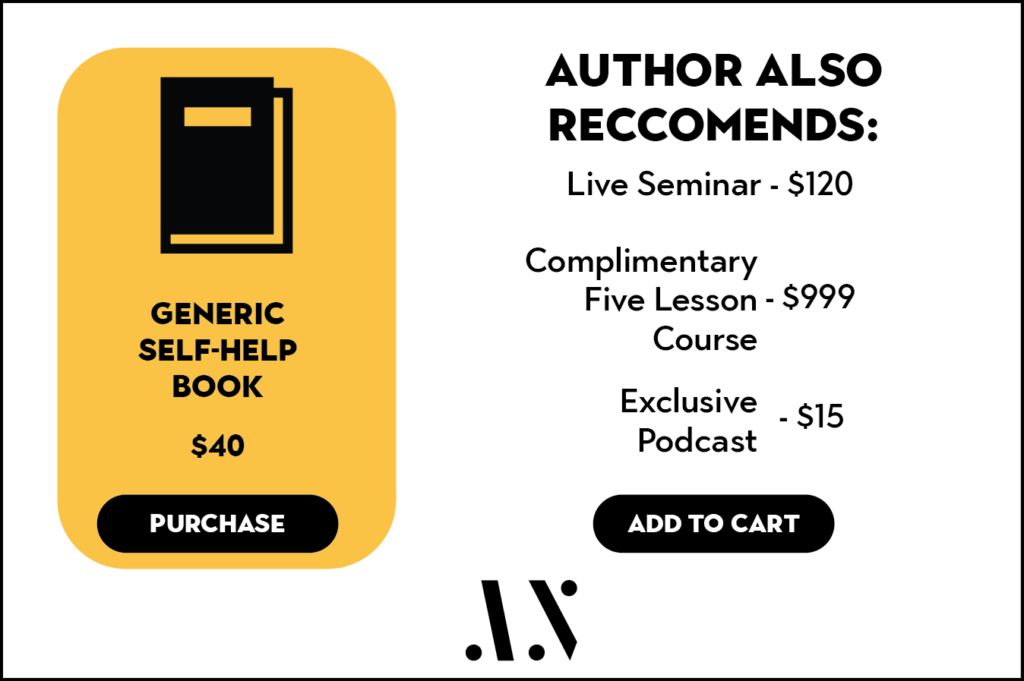
I believe that promoting other works after a successful book launch is a fine practice. So long as the author isn’t purposefully cutting crucial content from the book that can only be gained when purchasing their course.
Re-Alignment of Values
At the time of writing this blog post, I was participating in a story-telling workshop hosted by More to That’s Lawrence Yeo. Following a task feedback session, he referred me to one of his articles that was related to the same subject we are discussing right now.
In his blog post (must read!), he argued that self-help content positively impacts the reader if it teaches them the hows and whats. However, the moment that a self-help book attempts to teach the whys, it crosses the line.
For example, you’ve started reading a book on how to become a better artist because you want to improve your artistic capabilities. After reading for a few dozen pages, you stumble open a chapter called: “How to make your art sells better.”
This poses an issue because you originally read this book to become a better artist. However, this book is attempting to instill a new value: “making art that sells.”
If the book also changes your why your reasoning becomes foggy and your identity diluted. Only when we implement self-help book advice and adapt it to our values, that we can positively change our life.
Gaining Your Productivity Back
Throughout this article, I’ve listed the different ways self-help books can harm you if consumed in unhealthy amounts. The key takeaway of this article is the following: “Readers immensely rely on self-help books such that they never take action.”
Instead of having deep-focus hours of work throughout the day, you attempt to implement productivity hacks and journal your progress, which leaves you too tired to work, thus lowering your productivity.
In lieu of starting a business and learning along the road, you anxiously worry about your buyer’s persona and exit strategy.
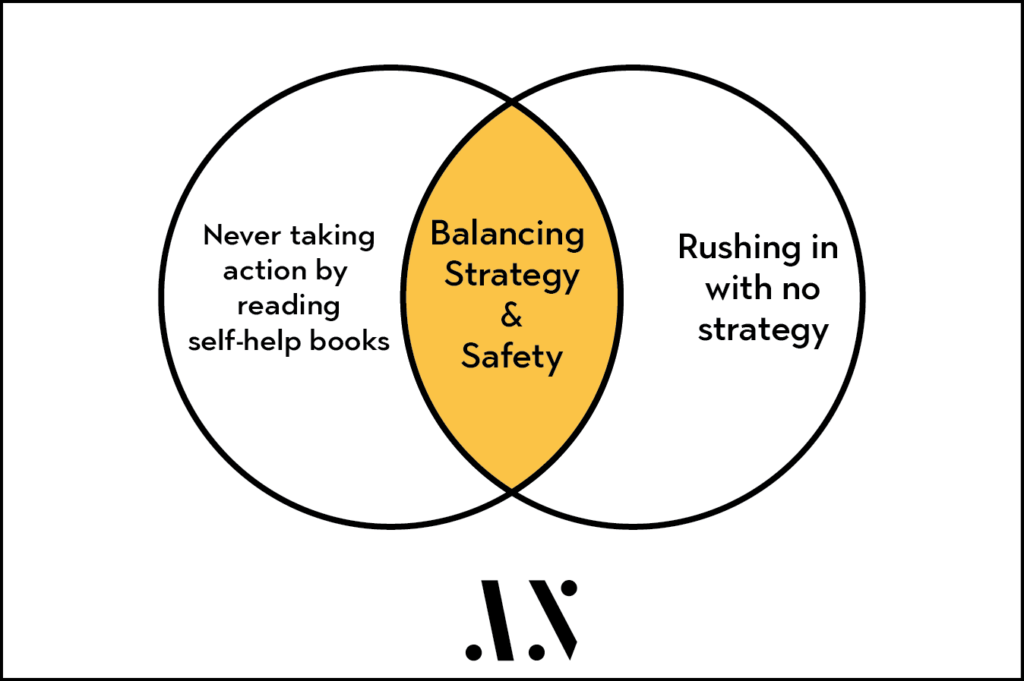
Ever since we were kids, we were raised to believe that reading books is always a healthy and productive activity. While it may be true in most cases, reading as a way to procrastinate against taking action does more harm than good.
Go out there and create something but take a book with you, cause you might need it when things get difficult.
